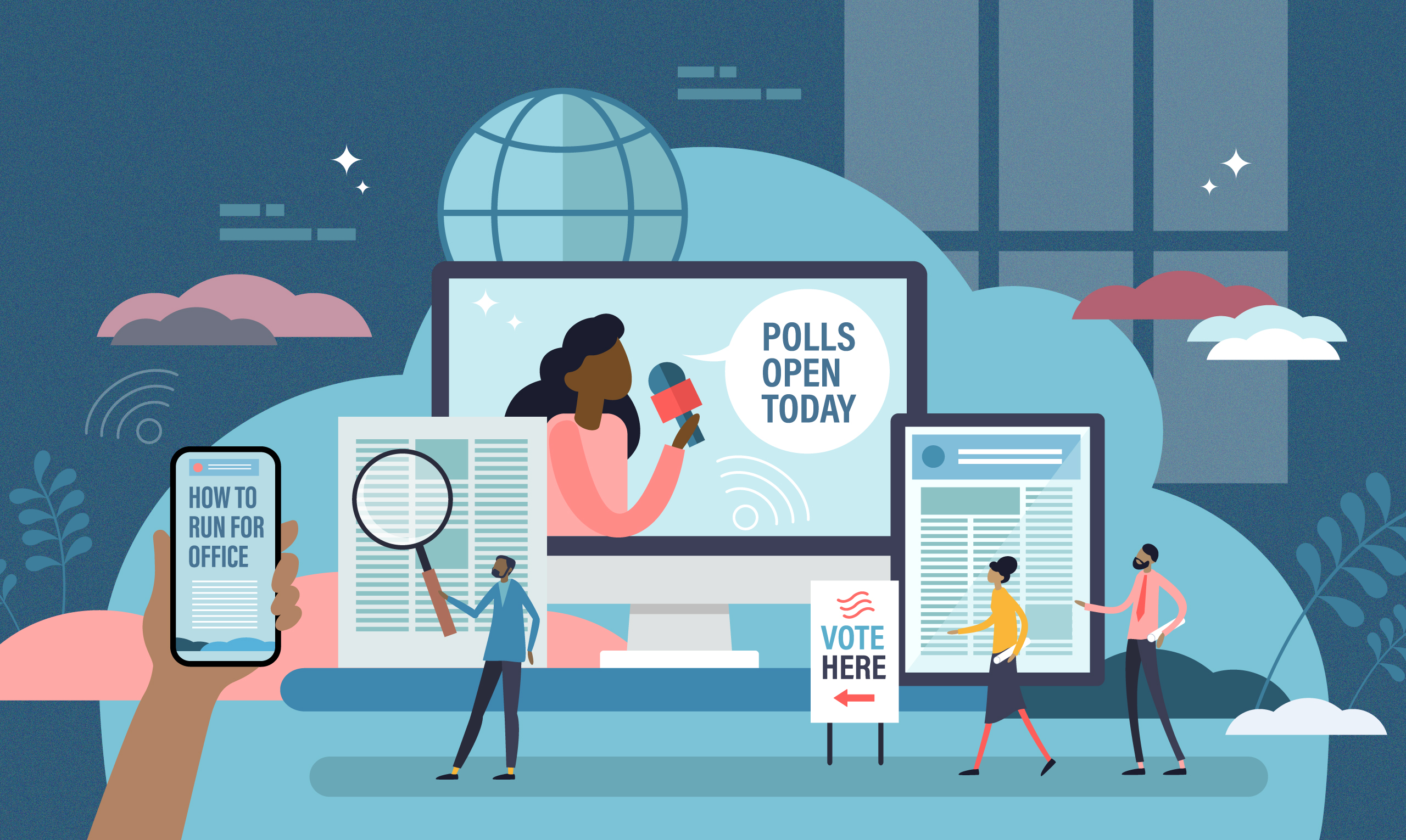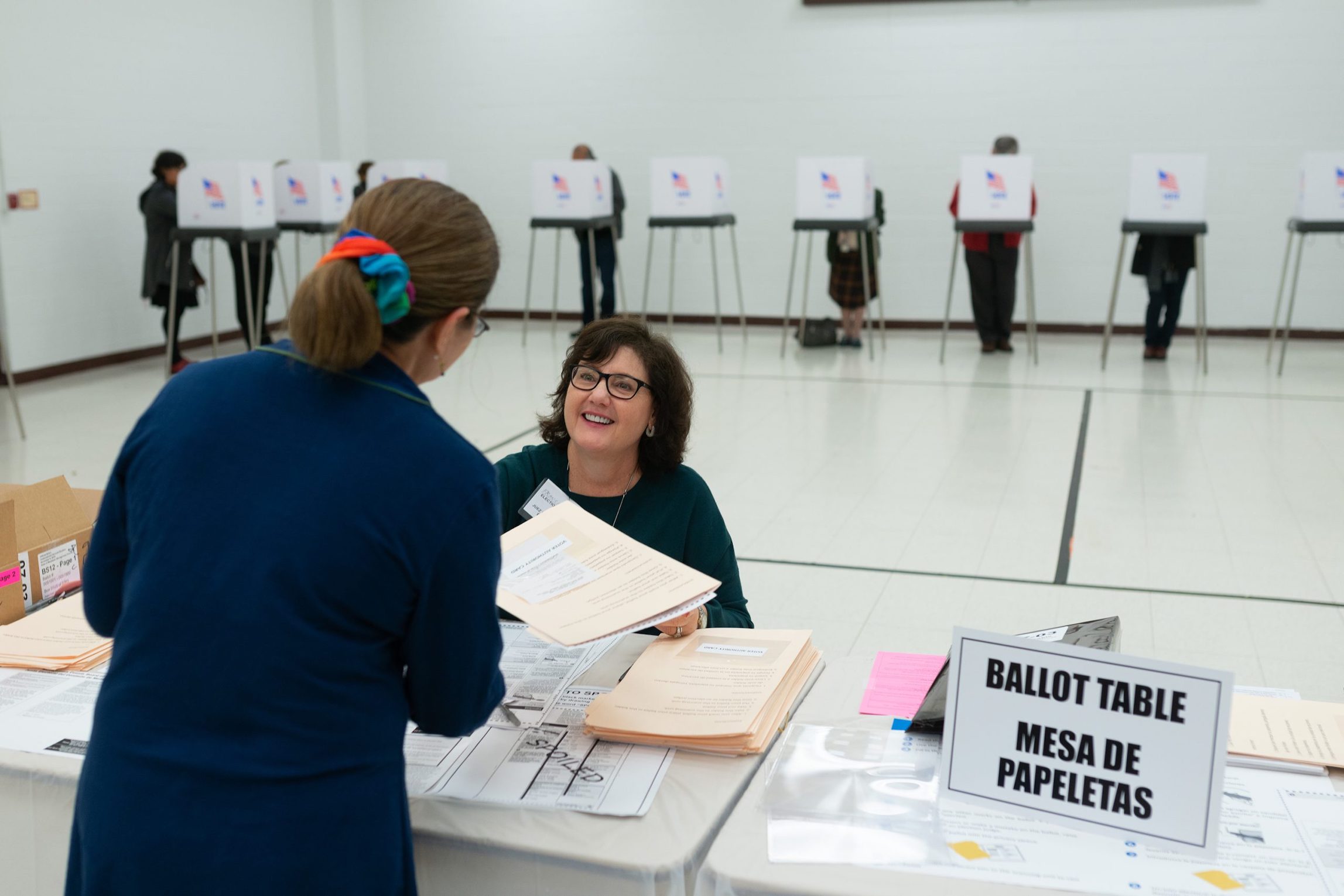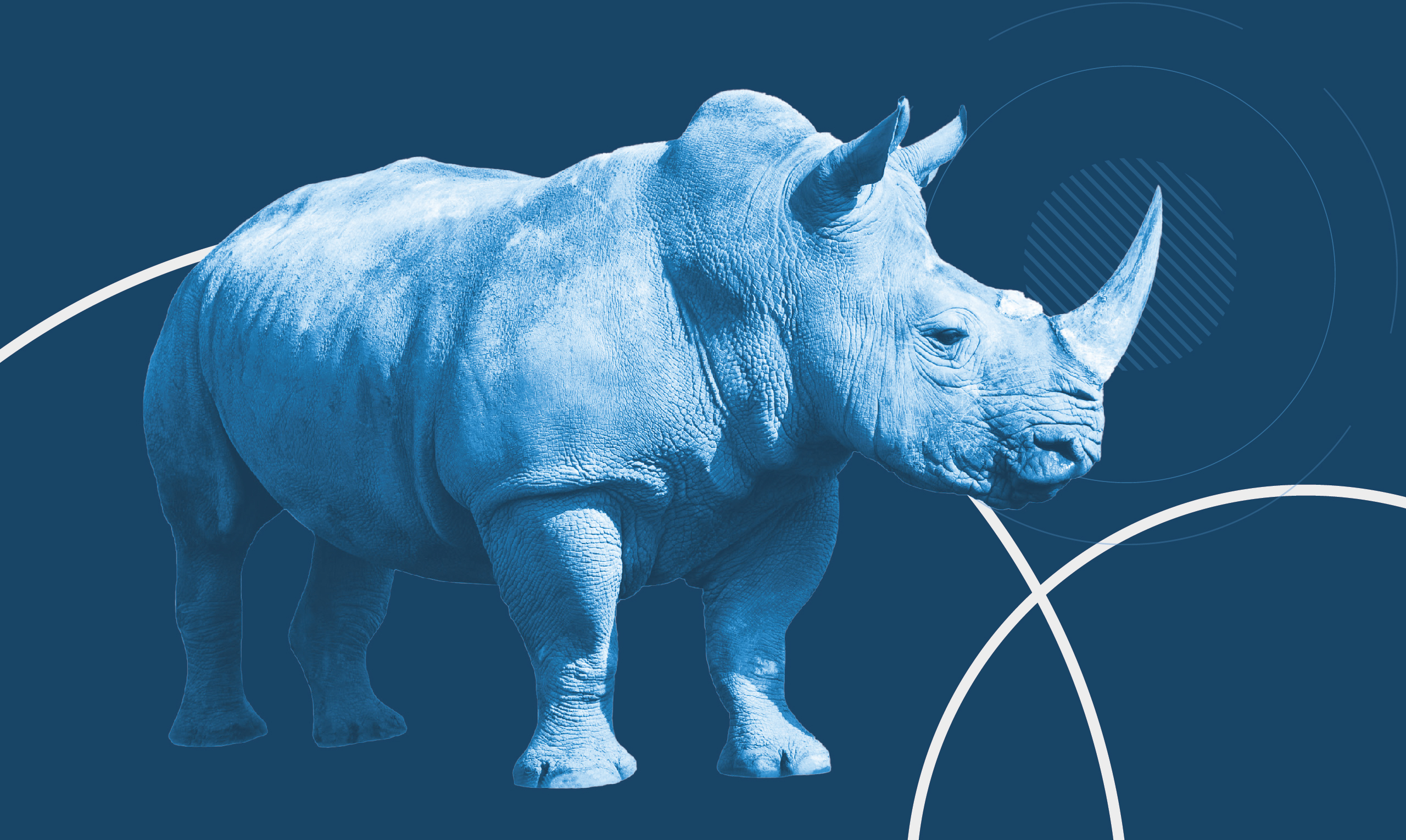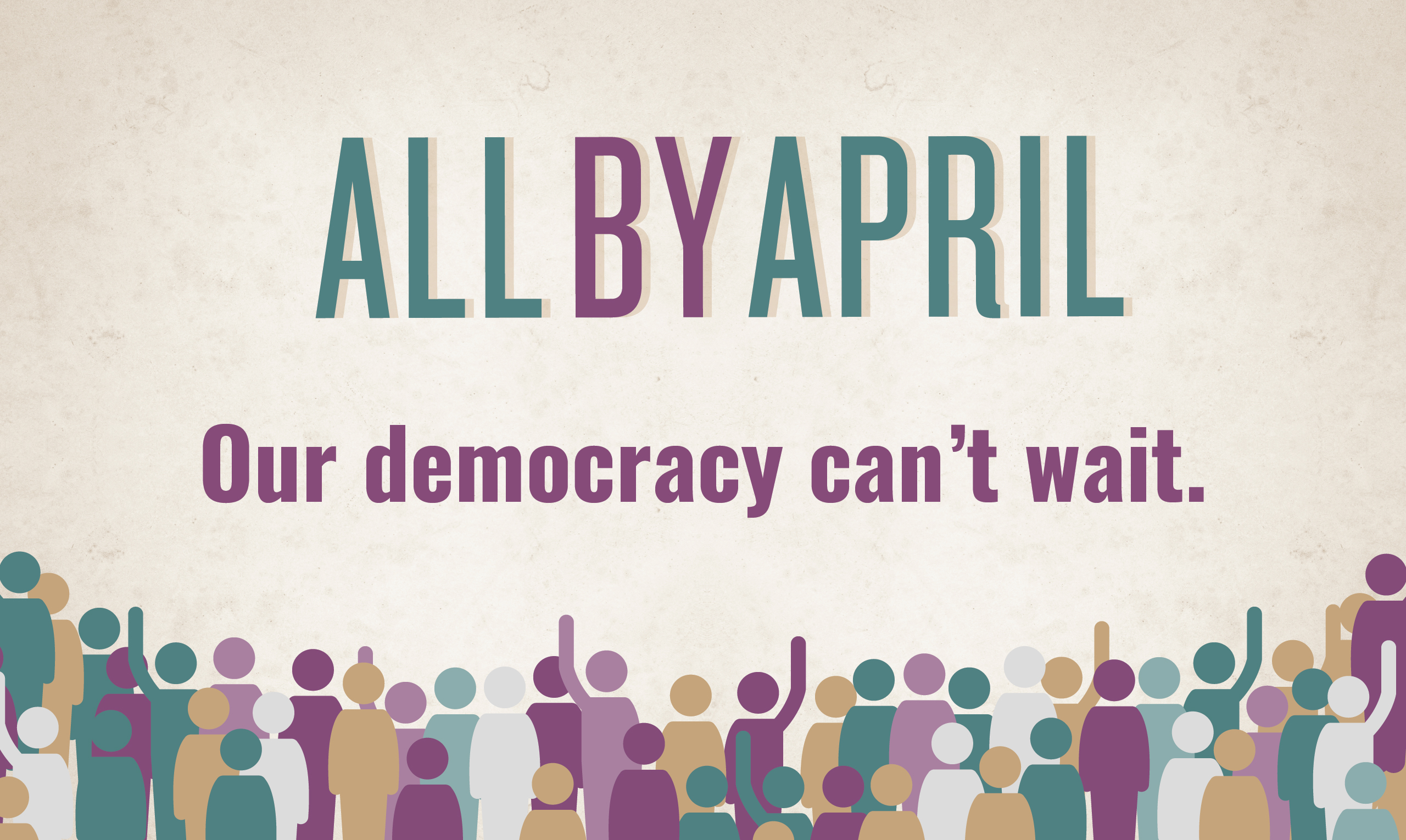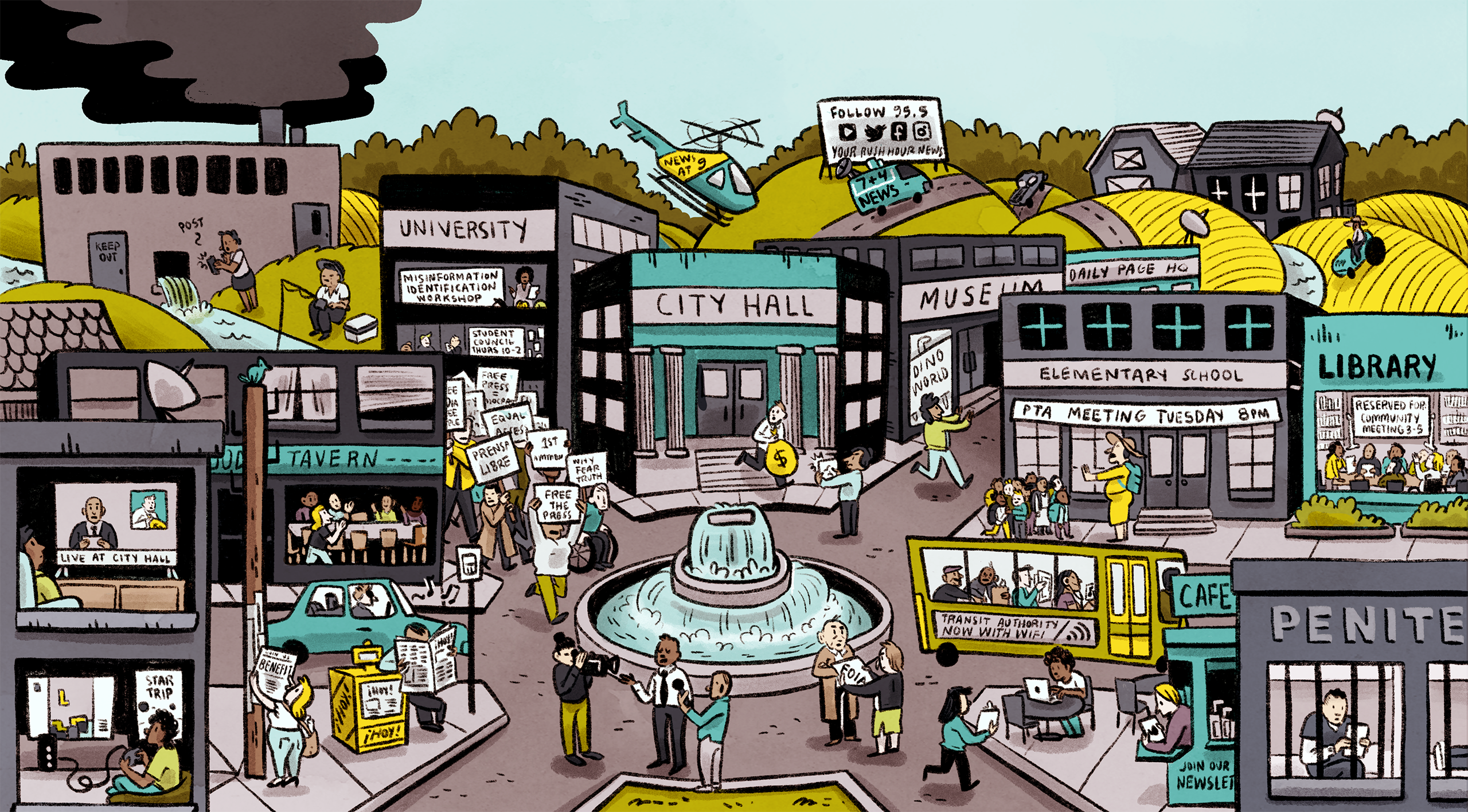Misinformation is hardly a new problem, but it often spikes around breaking news events. Racist narratives and conspiracy theories have rapidly escalated after the launch of Vice President Kamala Harris’s 2024 presidential campaign. Misinformation from across the political spectrum about the motivations behind the attempted assassination of former President Trump has also intensified.
The spread of misinformation is being acutely accelerated by political violence and the amplification of false AI-generated media. Newsrooms and journalists face staggering challenges to deliver reliable information to communities in a presidential election year — especially when these tensions are high.
The good news is we know more about the solutions today than ever before. The missing piece is the scale of resources needed to adequately respond to today’s challenges.
Philanthropy can address these challenges by combating misinformation and amplifying trustworthy information. Both actions are essential this election year and beyond to ensure communities have the necessary information to make decisions that impact their daily lives. It’s not too late to invest in this strategy.
Here are four ways that pro-democracy and journalism funders can act now:
1. Fund the organizers and experts who are mobilizing against misinformation. They are working right now to disrupt bad actors, hold Big Tech accountable, and intervene against harmful and false information campaigns targeting voters, particularly communities of color. Here are some examples of Democracy Fund grantees doing the work:
- A coalition of media and tech advocates including Free Press and MediaJustice are running the Change the Terms campaign to hold companies accountable when their technology is used to discriminate and suppress the vote.
- Check My Ads is following the money from ads that show up next to authoritarian messaging that seeks to undermine the election.
- Nonpartisan researchers at Protect Democracy and Over Zero are publishing essential resources that support journalists in explaining the various threats to democracy and de-escalating hate speech and dangerous rhetoric.
- Democracy SOS and the Center for Cooperative Media are providing crucial support for journalists to stay prepared and quickly respond to emergent issues. This includes curating resources for journalists, providing direct support to newsrooms, and boosting reporting on democratic backsliding, political violence, and misinformation in real time.
2. Fund newsrooms who are sharing trustworthy information. Newsrooms have the ideas, strategies, and motivation to meet this moment and are ready to move with more resources. In particular, newsrooms led by people of color have unparalleled reach and trust with the communities they serve — positioning them to counter misinformation and drive civic engagement. Here are some ways to find and support newsrooms:
- Use the Center for Community Media’s Maps & Directories to find and fund diverse community media outlets.
- Visit the INN Network Directory to find national and local independent, nonprofit, nonpartisan, and public service news organizations.
- Learn about 12 powerful projects already underway in need of resources. The Lenfest/AP Forum on Democracy & Journalism recently highlighted these efforts to strengthen this year’s election coverage and voting integrity efforts.
- Give to a joint effort to support newsrooms on a larger scale. The Racial Equity in Journalism Fund, NewsMatch, and Press Forward Pooled Fund all drive general operating funds to newsrooms.
3. Protect the messengers who are vulnerable to physical, digital, and legal threats. Small independent newsrooms and freelancers are especially exposed, particularly those serving communities with high levels of political polarization and voter suppression. We are already seeing authoritarian leaders attacking the media, and we anticipate this strategy will continue. To prepare for these risks, funders can proactively engage their grantees in scenario planning and be ready to quickly deploy resources if grantees are threatened.
4. Ensure newsrooms have the flexibility to adapt within an unpredictable political environment. News operations need the flexibility to plan, respond to challenges, and maintain operations. Restricted funding can lead to short-term solutions at the expense of long-term organizational health. Our funding practices can evolve to better meet their needs by offering multi-year, general operating support whenever possible, extending the timeline of grants, or reducing cohort and reporting requirements.
The need for trusted information doesn’t end on Election Day. Ultimately, elections and democracy reporting needs sustained support from philanthropy to be successful. Fully-funded democracy reporting would cover the decisions made about our voting system year-round by legislatures, courts, and local officials and track voter suppression efforts. It would allow the space to build stronger relationships with the community and the expertise to explain how national patterns impact local events. This coverage requires funders to think of democracy and elections coverage not as a seasonal activity, but as an ongoing process.
Please reach out to learn more about specific funding gaps, needs, and opportunities that Democracy Fund has gathered from our grantees and network.
